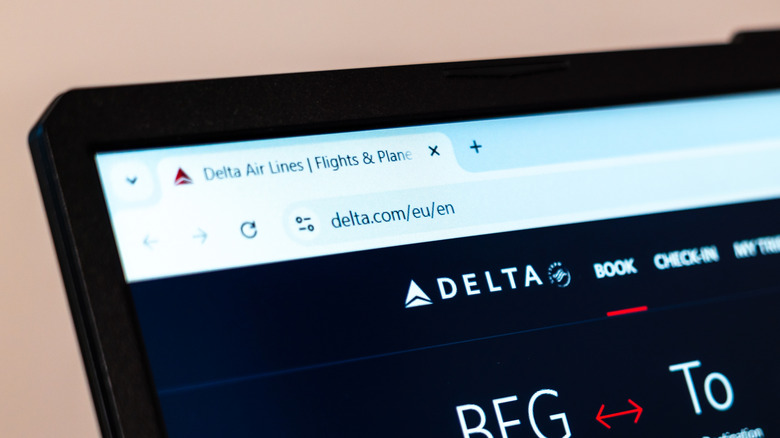Delta Won't Use Your Data For AI Ticket Pricing, But Privacy Questions Linger
A few weeks ago, Delta Air Lines stunned the world by saying during an earnings call that it saw "amazingly favorable" results during a pilot program where it used AI to set ticket prices. The program involved only 3% of fares, but Delta confirmed it wanted to increase it to 20% by the end of the year. The suggestion that Delta will use AI to determine the price a traveler would be willing to pay for a fare sparked privacy concerns, with some U.S. lawmakers voicing their worries about potential predatory pricing enabled by AI.
The worries are warranted in a world where AI models are so smart that they can guess the age of a YouTube or Google account user from the data Google collects about them. That's not a sci-fi scenario, either. After Delta's disclosure, Google announced plans to use AI to automatically verify the age of users.
Since Delta's earnings report, Democratic Senators Ruben Gallego, Mark Warner, and Richard Blumenthal sent a letter to Delta CEO Ed Bastian to express their concern about using AI for Delta fare pricing. "Delta's current and planned individualized pricing practices not only present data privacy concerns, but will also likely mean fare price increases up to each individual consumer's personal 'pain point' at a time when American families are already struggling with rising costs," the July 21 letter said.
Delta responded to the letter last week, saying it won't use personal data to set prices with AI. That's a positive development from the airline, but Delta hasn't explained how the AI determines the dynamic price offers it will show to specific customers. Privacy questions still linger as a result.
Delta's disclosures about AI use
A Delta representative told ABC News that the airline's AI ticketing system is in compliance "with regulations around pricing and disclosures." Delta denied using individual information about customers in its AI program. "There is no fare product Delta is testing that is based on individual information. Market forces drive the dynamic pricing model that's been used in the global industry for decades."
The comment echoes Delta's answer to lawmakers on Friday. Reuters saw a copy of the letter Delta sent in response to the three Democratic senators: "There is no fare product Delta has ever used, is testing, or plans to use that targets customers with individualized prices based on personal data. Our ticket pricing never takes into account personal data."
The airline also noted that airlines have used dynamic pricing for more than three decades, analyzing factors like demand, fuel, prices, and competition. The use of AI will "streamline the process by which we analyze existing data and the speed and scale at which we can respond to changing market dynamics," Delta claims.
New AI legislation proposal
The senators praised Delta's disclosures, but they also noted that questions remain about the company's AI practices when it comes to setting dynamic prices for its fares. "Delta is telling their investors one thing, and then turning around and telling the public another," Gallego said. "If Delta is in fact using aggregated instead of individualized data, that is welcome news."
Reuters also noted on Friday that Democratic lawmakers Greg Casar and Rashida Tlaib introduced legislation last week to prevent companies from using AI to set prices or wages based on Americans' personal data. The proposed law would specifically apply to airlines, banning them from raising prices after collecting personal data from a user.
Delta isn't done answering questions about what sort of data it feeds the AI so the system can create dynamic prices that are "amazingly favorable." Reuters on Tuesday reported that U.S. Transportation Secretary Sean Duffy said the department has concerns about the use of AI for personalized airline ticket prices. "To try to individualize pricing on seats based on how much you make or don't make or who you are, I can guarantee you that we will investigate if anyone does that," Duffy said. "We would engage very strongly if any company tries to use AI to individually price their seating."
Duffy said that it will take Delta's response from last week "at face value." This indicates no investigation will follow for now. But Duffy's response is an indication that the government is looking to prevent AI use for price gouging. Left unchecked, AI could help companies become more profitable by analyzing user data and determining higher price points.
How bad can it get?
The legislation Casar and Tlaib introduced last week cites a January report from the Federal Trade Commission that shows retailers often use personal user information to set prices. The report offers a hypothetical example of a new parent who would see higher-priced baby thermometers with the prices being set based on information a store collected about the user.
The letter the three Democratic lawmakers sent to Delta in July cites an example from former FTC Chair Lina Khan, who "has cautioned against a particularly egregious but conceivable example of an airline using AI to charge a higher fare to a passenger 'because the company knows that they just had a death in the family and need to fly across the country.' The opacity surrounding Delta's new customized pricing model could aggravate these concerns."
The three senators made it a point in their letter to remind the public what Delta and its partners said about personalized ticket prices. "As Delta President Glen Hauenstein stated in an investor conference in December, Delta's AI price setting technology is capable of setting fares based on a prediction of 'the amount people are willing to pay for the premium products related to the base fares.'"
"The technology making that determination is trained using 'all the data we can get our hands on,' according to Fetcherr CEO Roy Cohen," the letter reads. This sort of commentary from officials involved in Delta's AI use suggests the airline should further clear the air on the kind of data it uses to set dynamic prices.



